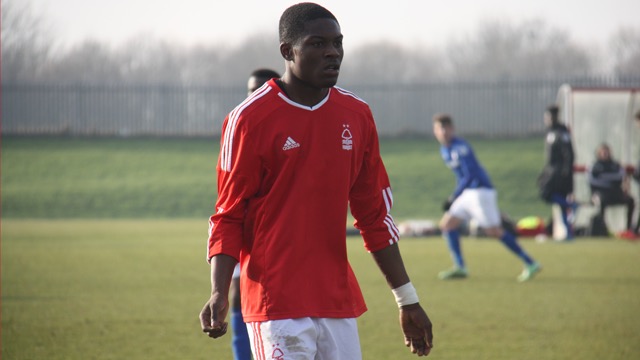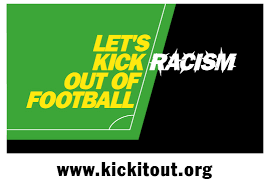Pierre-Emerick Aubameyang knows better than most that your skin colour is of irrelevance when you’ve sent your fans into a state of limb flailing ecstasy with a goal, especially if it’s against your local rivals. That is until a banana skin lands in close proximity of your celebrations. Suddenly your complexion is the story, not your football.
This act of racial abuse came days after an ITV documentary called ‘Out of Their Skin’, in which Ian Wright explored the journey through football of Viv Anderson and Cyrille Regis. Just as British football was collectively commending its progress since Regis and Richards received monkey chants in the in the 70’s and 80’s, one Tottenham fan at the Emirates reminded us not to get complacent.
This is the kind of overt racism that was commonplace back in the eighties. It’s creeping back and it’s abhorrent. https://t.co/vpPPTTP8qn
— Gary Lineker (@GaryLineker) December 3, 2018
https://platform.twitter.com/widgets.js
You’d be mistaken to think that this just happens in the Premier League. Kick It Out’s report released two weeks ago found 53% of all discrimination reports were racist in nature, a 22% rise from last year. And this occurs at grassroots level, on social media and at professional grounds.
It also occurs in academy football. Rhian Brewster told the FA he was called “nigger” by a Spartak Moscow player in the UEFA Youth League. When the report reached UEFA, it was concluded that there was not enough evidence for any further action.
Kasheme Walton played for Nottingham Forrest Under 15’s. He told Voice of London about a game on tour where he and other black teammates were subjected to abuse.
“I was away on tour during the pre-season playing for Nottingham forest F.C. I was u15’s, as were rest of the team. We happened to be staying in the same hotel as other teams from other countries including this team from Venezuela. During our shared time together, some of the Venezuelan players threw objects at some of our doors including knifes.

“In our game against them a few days later, I remember playing as a striker and one of the defenders spat on my neck while the ball was with our defence. I turned around and he was gone, and I could not pin-point who exactly had done it. Later on in the game, as we were winning, two or three of their fans began to make mild monkey noises directed at myself and a few of my teammates.”
Despite the incident, Kasheme and the rest of his teammates continued playing their football. It’s clearly something players like Kasheme have grown to expect. As for whether bodies such as the FA and Kick it Out can do more, he believes the real power is in the hands of the policy makers.
“To be honest, I think that Kick it Out and the FA have done as much as they can in trying to combat racism in the sport. However, I think more pressure should be applied at the executive level: to the chairman’s of teams to act indefinitely when a fan, player or anyone associated with the club has been racist. Fans should be banned from ever attending another football game again. And players should receive a 10-match ban just like Luis Suarez did.”
The Voice of London asked the FA for a comment. They didn’t respond to our invitation.
It’s apparent however that the UK is not alone in its fight against discriminatory rhetoric. Bryan Ijeh lives in London and Switzerland. He discusses how he was racially abused in the audio interview below:
Bryan’s experiences from his birth country Switzerland show how universal racial abuse can be. He also discusses the influence of geography when it comes to racist views, as well as echoing the sentiment of a need for action from bodies beyond football, namely, governments:
So what next? The good work of Kick It Out will continue. The FA will probably get much of the flack for football existing as a breeding ground for grassroots prejudice, and that may be fair to an extent. However it’s clear a few things need to happen if we are to see an end to discrimination in football.
The first, clubs need to continue educating their fans on racism like has been done in previous years. It’s crucial clubs don’t rest on their laurels, and ensure that stewards, club staff and supporters understand exactly what constitutes racist abuse.
Furthermore, heftier punishments have to be enforced. Kasheme and Bryan will never see their abhorrent vixens face disciplinary action, nor will Rhian Brewster. Thankfully however, Aubameyang’s abuser will be banned from attending Tottenham games for life. This is the sort of no-tolerance stance that in fairness, has become the norm and rightfully so.
It’s also clear however, that the issue transcends football. The United Kingdom and much of Europe is politically polarised. Education must take place in all organisations across all sectors. The pressure for this to happen can only come from local councils, parliament and government, because football is just one of many contexts that racist abuse has begun to thrive in.
Words: Charlie Bradley| Subbing: Matthew Smith

